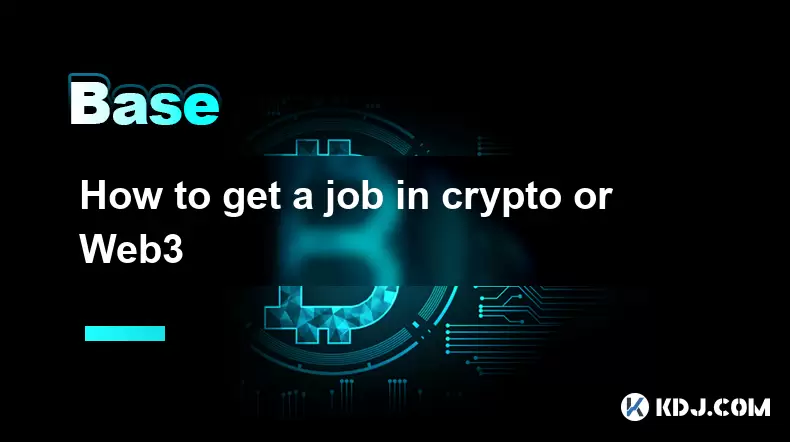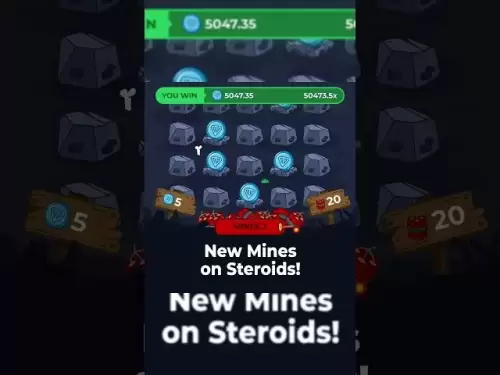-
 Bitcoin
Bitcoin $120400
1.77% -
 Ethereum
Ethereum $3615
7.90% -
 XRP
XRP $3.580
17.84% -
 Tether USDt
Tether USDt $1.001
0.06% -
 BNB
BNB $729.4
1.25% -
 Solana
Solana $179.9
5.04% -
 USDC
USDC $0.0000
0.01% -
 Dogecoin
Dogecoin $0.2311
8.22% -
 TRON
TRON $0.3226
4.04% -
 Cardano
Cardano $0.8490
12.85% -
 Hyperliquid
Hyperliquid $46.45
0.72% -
 Stellar
Stellar $0.4913
8.54% -
 Sui
Sui $4.027
2.00% -
 Chainlink
Chainlink $18.51
11.67% -
 Hedera
Hedera $0.2818
21.51% -
 Avalanche
Avalanche $24.03
7.40% -
 Bitcoin Cash
Bitcoin Cash $508.5
2.90% -
 Shiba Inu
Shiba Inu $0.00001496
3.24% -
 UNUS SED LEO
UNUS SED LEO $8.961
1.83% -
 Toncoin
Toncoin $3.264
3.13% -
 Litecoin
Litecoin $104.6
8.15% -
 Polkadot
Polkadot $4.389
6.11% -
 Uniswap
Uniswap $9.924
10.63% -
 Monero
Monero $337.9
0.49% -
 Pepe
Pepe $0.00001376
2.79% -
 Bitget Token
Bitget Token $4.830
2.46% -
 Ethena USDe
Ethena USDe $1.001
0.05% -
 Dai
Dai $1.000
0.02% -
 Aave
Aave $325.2
1.66% -
 Bittensor
Bittensor $423.7
-0.85%
How to get a job in crypto or Web3
To succeed in crypto and Web3, build technical skills like Solidity or Rust, engage with communities, and gain experience through internships or open-source contributions.
Jul 13, 2025 at 07:56 am

Understanding the Crypto and Web3 Industry Landscape
The cryptocurrency and Web3 industries are rapidly evolving, offering a wide array of opportunities for individuals with diverse skill sets. To get a job in this space, it's essential to understand the various sectors within the ecosystem. These include blockchain development, decentralized finance (DeFi), non-fungible tokens (NFTs), smart contracts, decentralized autonomous organizations (DAOs), and more. Each area has unique requirements, and identifying where your skills align is the first step toward entering the industry.
Tip: Follow thought leaders, join Discord groups, and subscribe to crypto newsletters like Coindesk or The Block to stay updated on trends.
Building Relevant Technical Skills
For many roles in crypto and Web3, technical proficiency is crucial. Whether you're aiming to become a blockchain developer, smart contract engineer, or data analyst in DeFi protocols, mastering specific tools and languages is necessary. Key programming languages include Solidity for Ethereum-based smart contracts, Rust for Solana projects, and JavaScript/TypeScript for front-end dApp development.
- Learn Solidity through online courses on platforms like Coursera or Udemy.
- Experiment with Remix IDE, Hardhat, or Truffle for hands-on experience.
- Deploy testnet smart contracts using tools like MetaMask and Alchemy.
Pro Tip: Build a portfolio by contributing to open-source projects on GitHub or creating your own decentralized applications (dApps).
Non-Technical Roles in Web3
You don't need to be a developer to work in Web3. There are numerous non-technical positions such as marketing, community management, legal compliance, content creation, and product design. For example, DAOs often require moderators, while NFT platforms need curators and digital marketers.
- Join Discord servers of popular projects to understand community dynamics.
- Write articles or create videos explaining crypto concepts to beginners.
- Network with professionals on Twitter Spaces or Clubhouse discussions.
Remember: Communication skills and understanding of blockchain principles are vital even for non-tech roles.
Getting Started with Internships and Freelancing
Internships and freelance gigs are excellent ways to break into the crypto industry. Many startups offer remote internships that can lead to full-time roles. Platforms like Gitcoin, Dework, and DAOhaus list microtasks and bounties that allow you to gain real-world experience.
- Apply for hackathons hosted by ETH Global or BUIDLGuidl.
- Complete bounties related to documentation, testing, or design on platforms like FirstBatch.
- Create a LinkedIn profile highlighting your contributions to open-source Web3 projects.
Insight: Always document your work and contributions publicly to build credibility in the decentralized world.
Networking and Community Engagement
In the Web3 space, who you know often matters as much as what you know. Engaging with communities on social media, attending virtual meetups, and participating in governance proposals can help you stand out.
- Follow key influencers on Twitter and engage with their content regularly.
- Attend AMAs (Ask Me Anything) sessions hosted by crypto founders or developers.
- Contribute to governance forums like those on Snapshot or Discourse for major protocols.
Strategy: Be genuine and consistent in your interactions—reputation is currency in decentralized ecosystems.
Frequently Asked Questions
Is a formal degree necessary to work in crypto or Web3?
No, formal education isn't mandatory. Many successful contributors in Web3 are self-taught or come from unrelated academic backgrounds. What matters most is practical knowledge, portfolio quality, and active participation in the community.
How do I find remote jobs in the crypto industry?
Use specialized job boards like CryptocurrencyJobs.co, WeAreDistributed, or AngelList. Join Telegram channels dedicated to Web3 hiring and follow companies directly on Twitter for job announcements.
What soft skills are important in the crypto space?
Self-motivation, adaptability, and communication skills are highly valued. Since many teams operate remotely and autonomously, being proactive and able to collaborate asynchronously is crucial in Web3 environments.
Can I transition from traditional tech to Web3?
Absolutely. If you have experience in software development, product management, or cybersecurity, transitioning to Web3 can be smooth. Focus on learning blockchain-specific technologies and contribute to relevant projects to make the switch easier.
Disclaimer:info@kdj.com
The information provided is not trading advice. kdj.com does not assume any responsibility for any investments made based on the information provided in this article. Cryptocurrencies are highly volatile and it is highly recommended that you invest with caution after thorough research!
If you believe that the content used on this website infringes your copyright, please contact us immediately (info@kdj.com) and we will delete it promptly.
- Bitcoin, Crypto Wallets, and Security: Staying Safe in the Wild West of Digital Finance
- 2025-07-18 16:30:12
- Bitget Launchpool Heats Up with Caldera (ERA) Token Rewards!
- 2025-07-18 16:50:12
- XLM Bullish Chart: Analyst Sees Stellar Opportunity
- 2025-07-18 17:10:13
- Memeclip Presale: The 100x Potential CT Degens Are Buzzing About
- 2025-07-18 16:30:12
- Twitter, Investors, and PENGU Trade: Decoding the Signals
- 2025-07-18 17:10:13
- DeFi Liquidity on Fire: Kadena's Chainweb EVM Heats Up!
- 2025-07-18 17:15:13
Related knowledge

What is the Bitcoin dominance index
Jul 12,2025 at 10:35pm
Understanding the Bitcoin Dominance IndexThe Bitcoin Dominance Index, often abbreviated as BTC.D, is a metric used to measure Bitcoin's market capital...

What is the Bitcoin dominance index
Jul 11,2025 at 04:29am
What is the Bitcoin Dominance Index?The Bitcoin Dominance Index is a metric used to gauge Bitcoin's market capitalization relative to the total market...

What is the correlation between Bitcoin and the stock market
Jul 18,2025 at 04:56am
Understanding the Correlation Between Bitcoin and the Stock MarketThe correlation between Bitcoin and the stock market has become a topic of increasin...

Can crypto be a hedge against inflation
Jul 14,2025 at 12:21am
Understanding the Concept of Hedging Against InflationInflation refers to the general increase in prices and fall in the purchasing value of money ove...

Can crypto be a hedge against inflation
Jul 12,2025 at 12:07pm
Understanding the Role of Blockchain in Decentralized Finance (DeFi)Blockchain technology serves as the backbone of decentralized finance, offering a ...

What are account abstraction wallets
Jul 13,2025 at 01:43am
Understanding the Concept of Account AbstractionAccount abstraction is a term frequently used in the Ethereum ecosystem, particularly within discussio...

What is the Bitcoin dominance index
Jul 12,2025 at 10:35pm
Understanding the Bitcoin Dominance IndexThe Bitcoin Dominance Index, often abbreviated as BTC.D, is a metric used to measure Bitcoin's market capital...

What is the Bitcoin dominance index
Jul 11,2025 at 04:29am
What is the Bitcoin Dominance Index?The Bitcoin Dominance Index is a metric used to gauge Bitcoin's market capitalization relative to the total market...

What is the correlation between Bitcoin and the stock market
Jul 18,2025 at 04:56am
Understanding the Correlation Between Bitcoin and the Stock MarketThe correlation between Bitcoin and the stock market has become a topic of increasin...

Can crypto be a hedge against inflation
Jul 14,2025 at 12:21am
Understanding the Concept of Hedging Against InflationInflation refers to the general increase in prices and fall in the purchasing value of money ove...

Can crypto be a hedge against inflation
Jul 12,2025 at 12:07pm
Understanding the Role of Blockchain in Decentralized Finance (DeFi)Blockchain technology serves as the backbone of decentralized finance, offering a ...

What are account abstraction wallets
Jul 13,2025 at 01:43am
Understanding the Concept of Account AbstractionAccount abstraction is a term frequently used in the Ethereum ecosystem, particularly within discussio...
See all articles

























































































